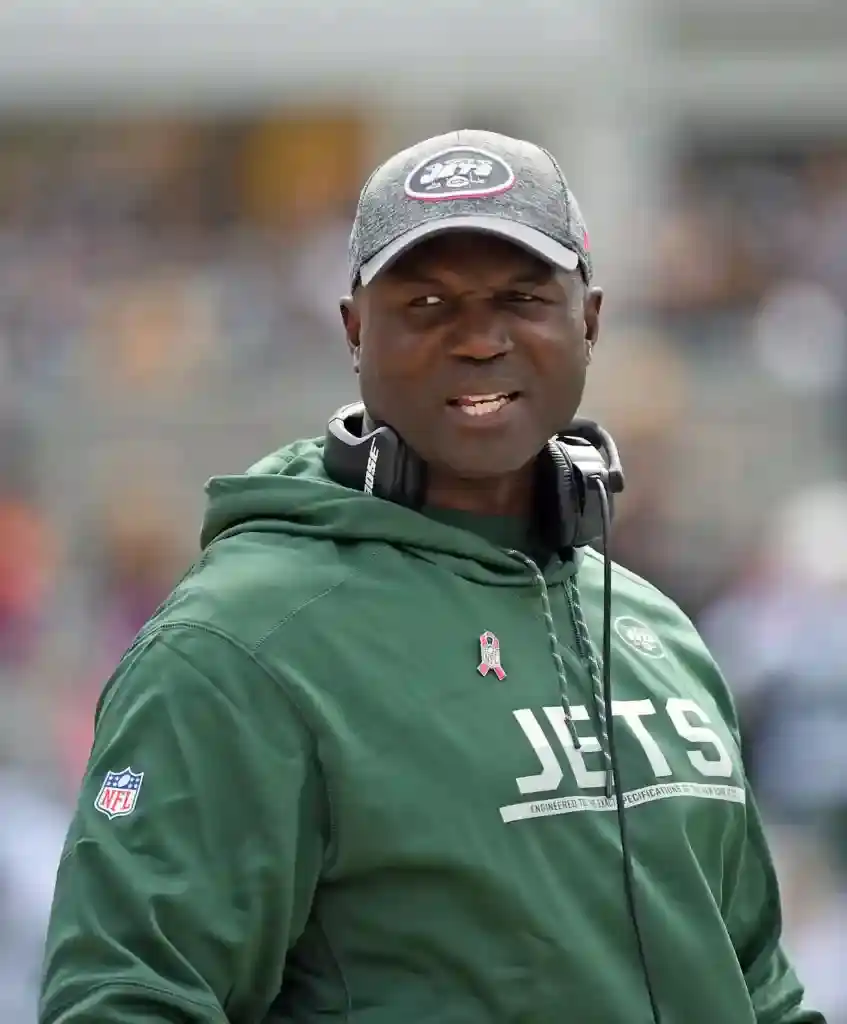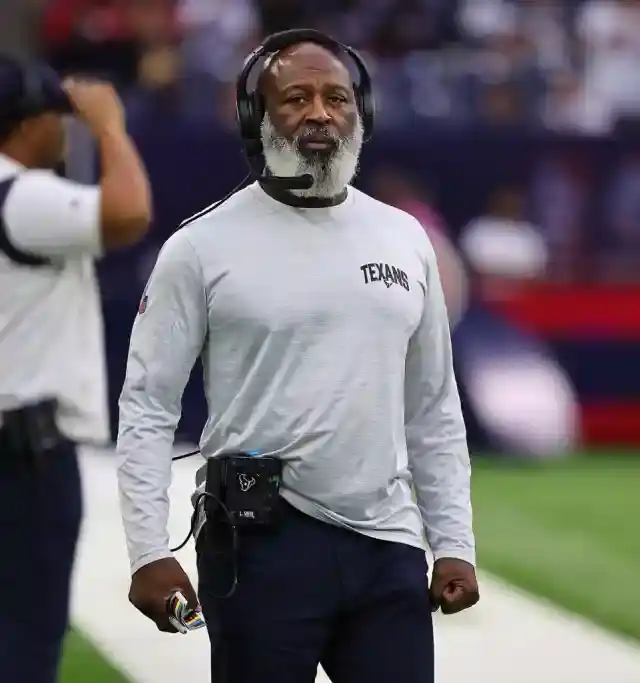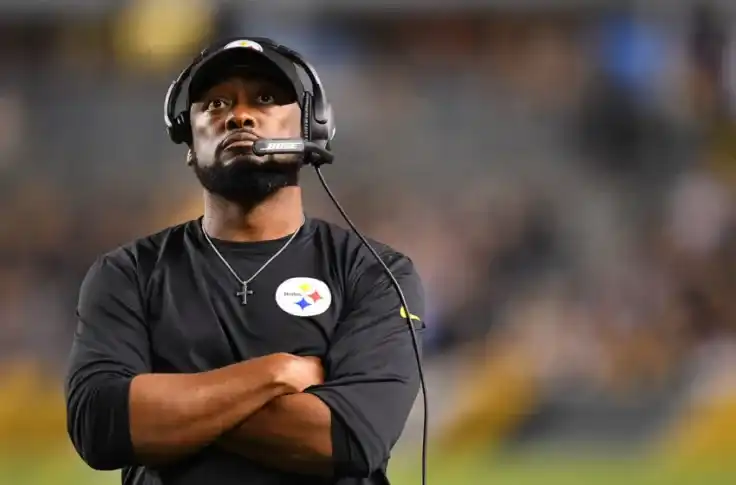There are now three black coaches working for the National Football League (NFL), the same number as in 2003 before the Rooney Rule.
Despite efforts to diversify the NFL by hiring coaches of colour and other members of underrepresented groups, the outcome has been disappointing.
Become an insider. Subscribe to our newsletter for more top trending stories like this!
Who are the 3 black coaches in the NFL?
Only three of the 32 head coaches in the National Football League, or 9%, are African Americans. In light of how many white couches have dominated the NFL over the years, this representation of black coaches is unfair. Ironically, the worrying situation of only three black coaches in the NFL in 2003, led to the formation of the Rooney Rule.
The head coaches are Mike Tomlin of the Pittsburgh Steelers, Todd Bowles of the Tampa Bay Buccaneers, and Lovie Smith of the Houston Texans.
Let’s take a look at their profile
Todd Bowles of the Tampa Bay Buccaneers

NFL football coach Todd Bowles has served as the Tampa Bay Buccaneers’ head coach through 2022. Before joining the Buccaneer as head coach, he was the group’s defensive coordinator.
He spent five seasons as a head coach during his career, the first three with the New York Jets. During his four seasons as the Jets’ head coach, he had a 24-40-0 record. On December 30, 2018, Sunday, the Jets let him go.
For the 2022 season, he served as head coach of the Tampa Bay Buccaneers, where he helped the team to a 6-7-0 record. His two clubs combined for a 30-47-0 record over five seasons while he was their head coach.
Lovie Smith of the Houston Texans

As the head coach of the Houston Texans since 2022, Lovie Smith is one of the black coaches in the NFL. Before assuming this role, Smith served as the Texans’ defensive coordinator and assistant head coach in 2021.
Throughout his twelve seasons as a head coach with the Chicago Bears, he coached the team for twelve straight seasons. For nine seasons as head coach for the Bears, he has compiled an 81-63-0 record.
He was lay-off as head coach with the Bears in December 2012
From 2014 to 2015, Smith was the head coach of the Tampa Bay Buccaneers, where he led the team to an 8-24-0 record. Smith lost his job with the Buccaneers on January 6, 2016, as Bowles did.
In 2022, the Houston Texans hired him as their third head coach. The team’s record under his direction was 1-11-1 during the one season he served as coach. His three clubs had a cumulative record of 90-98-1 throughout the twelve seasons as their head coach, including a 3-3-0 playoff record.
Become an insider. Subscribe to our newsletter for more top trending stories like this!
Mike Tomlin of the Pittsburgh Steelers.

Managing the Pittsburgh Steelers since 2007, Mike Tomlin has been a head coach in the National Football League. In this time frame, the Steelers recorded
a 159-93-2 record. In total, he led the Pittsburgh Steelers to 159-93-2 records between 2007 and 2022.
He spent sixteen of his career seasons in that position. By a score of 27–23 over the Arizona Cardinals, the Steelers defeated them in the Super Bowl in 2008.
Rooney rule
The NFL has been pushing for teams to appoint more African Americans as head coaches since 2003 under a policy known as the “Rooney Rule.” According to this rule, while choosing a new head coach, teams must interview at least two minority candidates.
For open head coaching and front-office roles, this implies that the team interview at least one person of colour in person. Clubs must also keep thorough records and submit them to the league at the commissioner’s request.
Head coaches that are African American are still hard to come by despite this regulation. This issue does not only exist in the NFL. Only 15%, or 15 out of 131 college Football Bowl Subdivision (FBS) head coaches are black. It’s not surprising that the dominant Southeastern Conference has no black head coaches (SEC).
Will the situation change in the future?
For a long time, the NFL has struggled with having enough black head coaches. It will take a lot of time for things to improve, judging by how long it has been since the Rooney Rule and how difficult it has been to practice it.
It’s high time NFL owners and others gave black coaches the same opportunities as white ones.
Read Also: Tackling Racism in Sports: How We All Can Help
Become an insider. Subscribe to our newsletter for more top trending stories like this!





